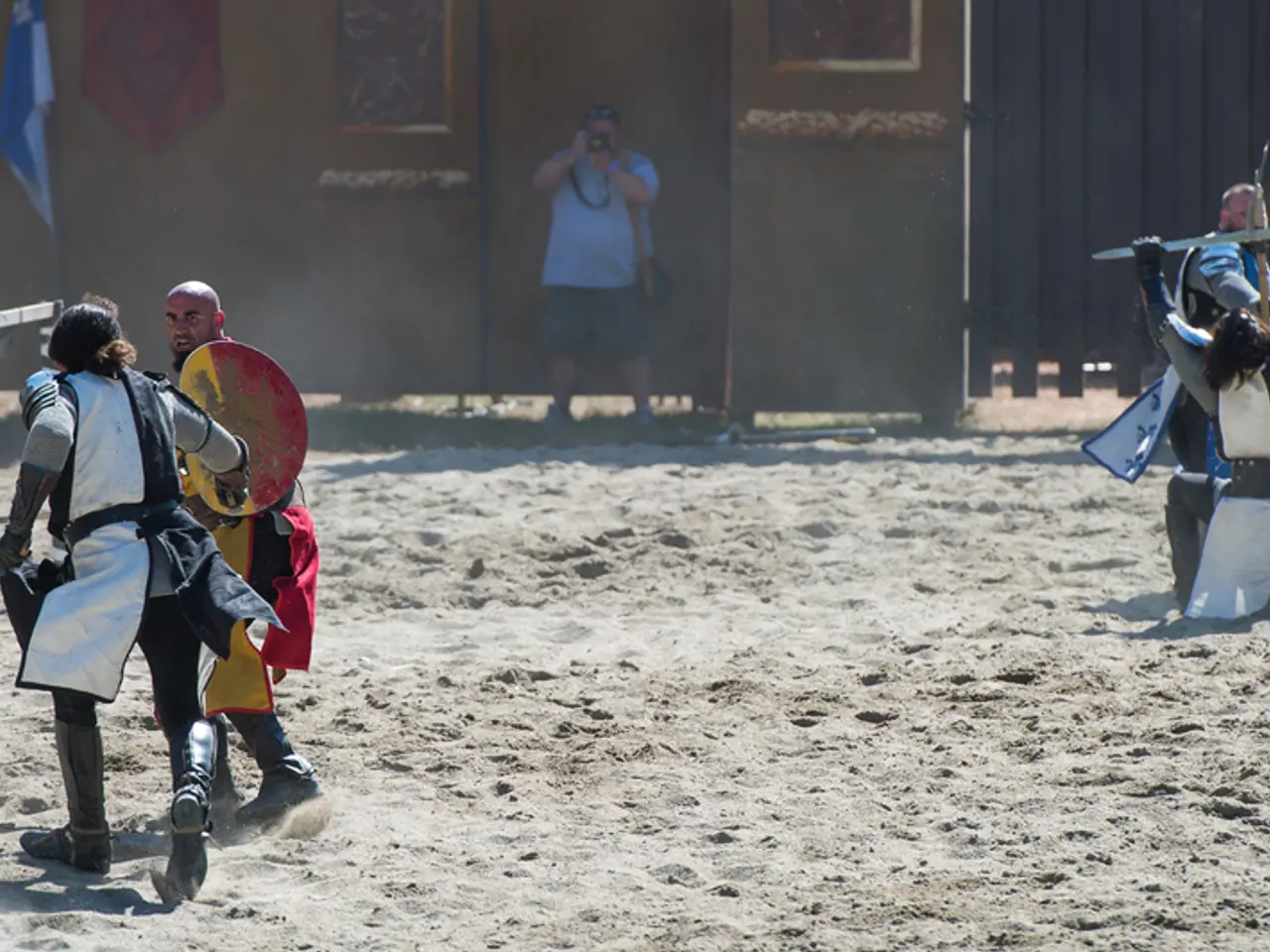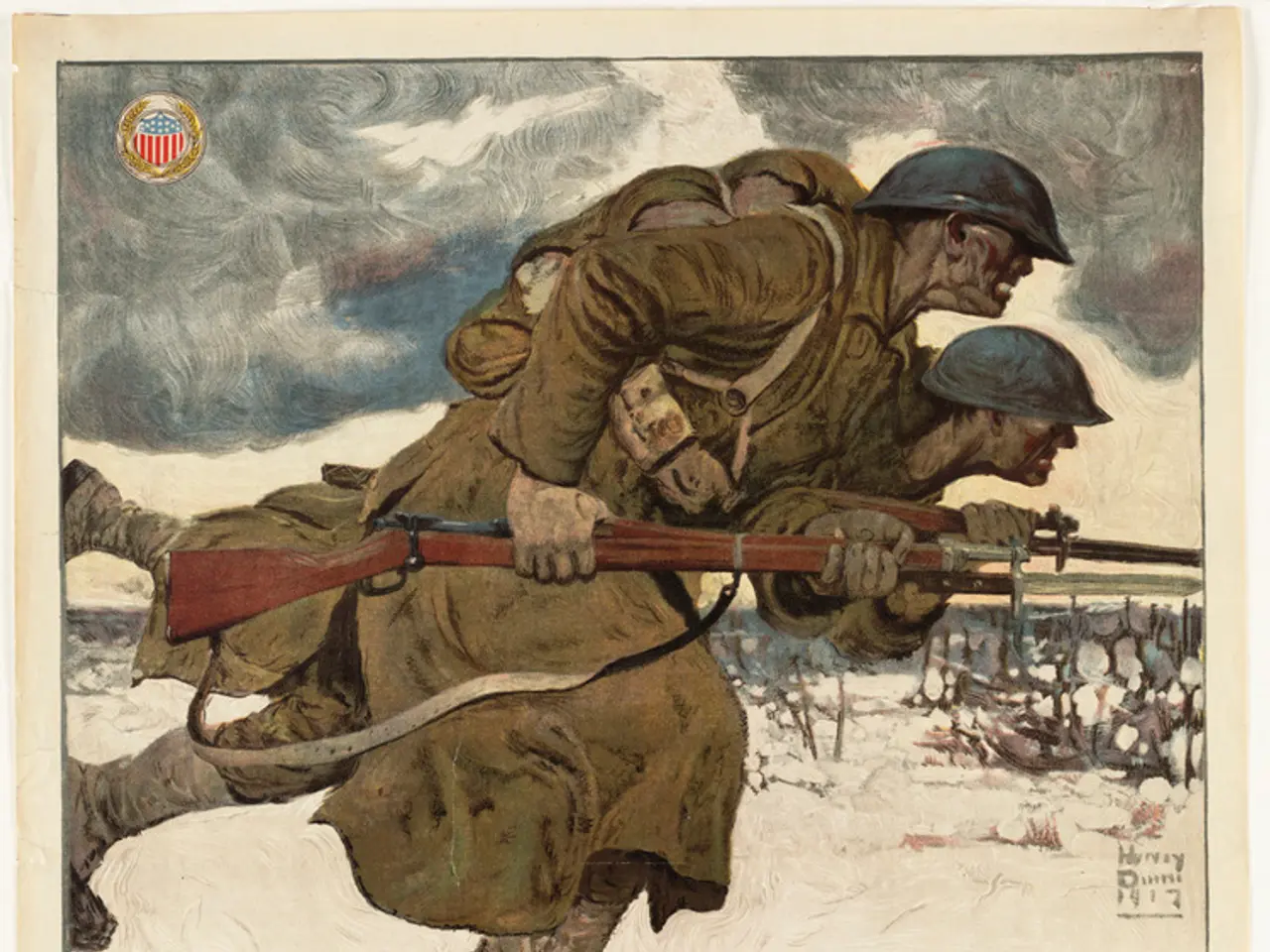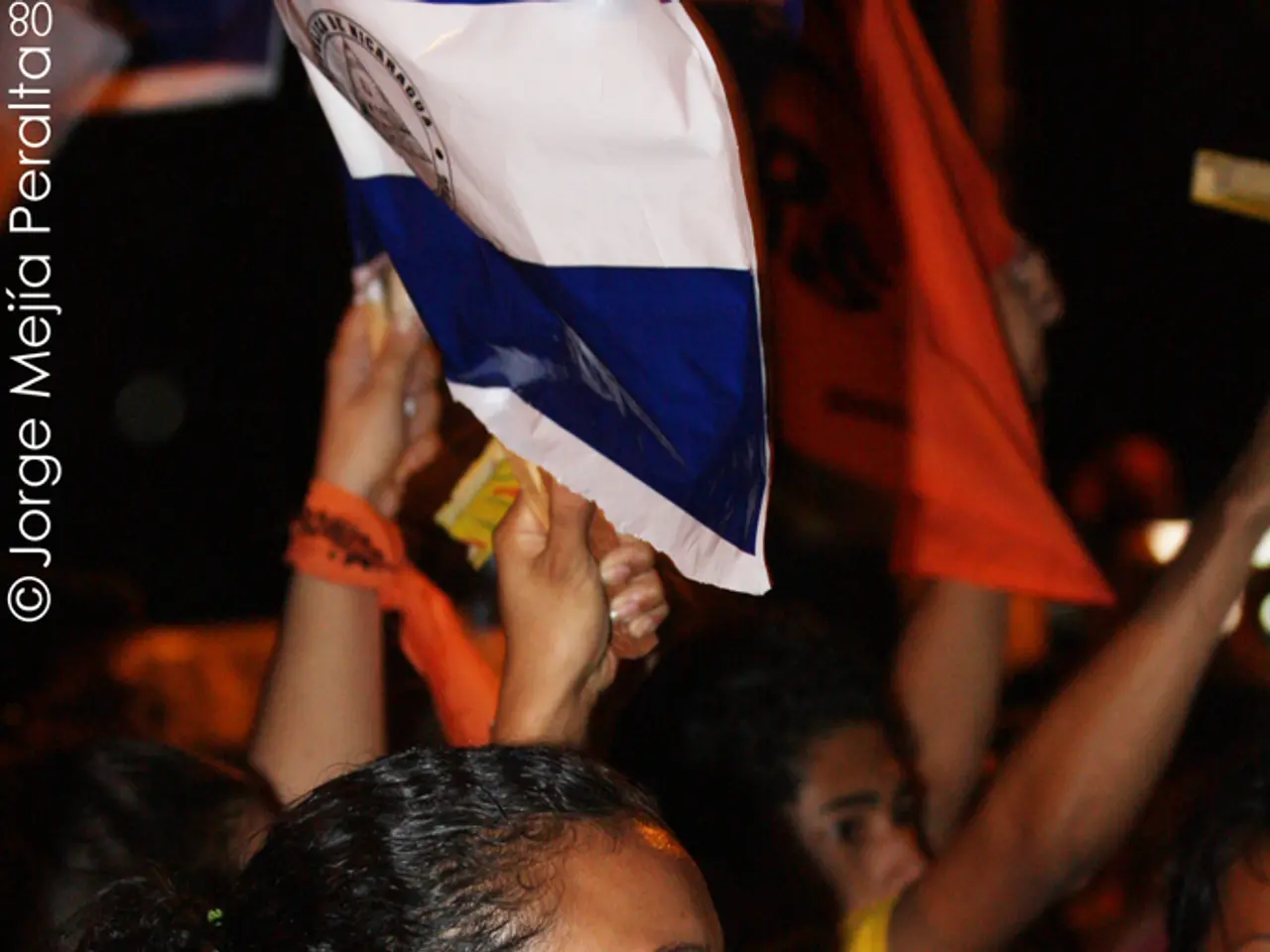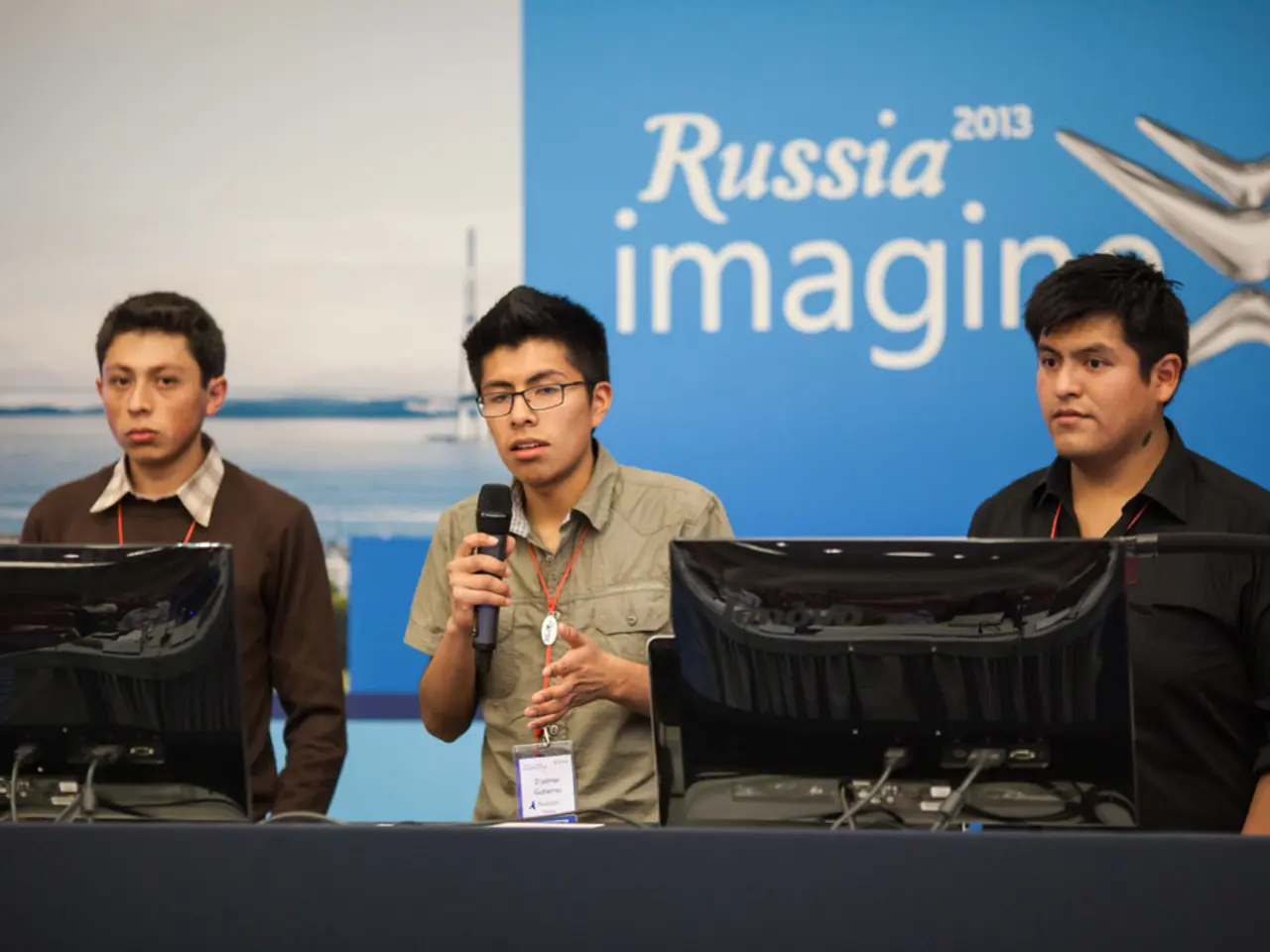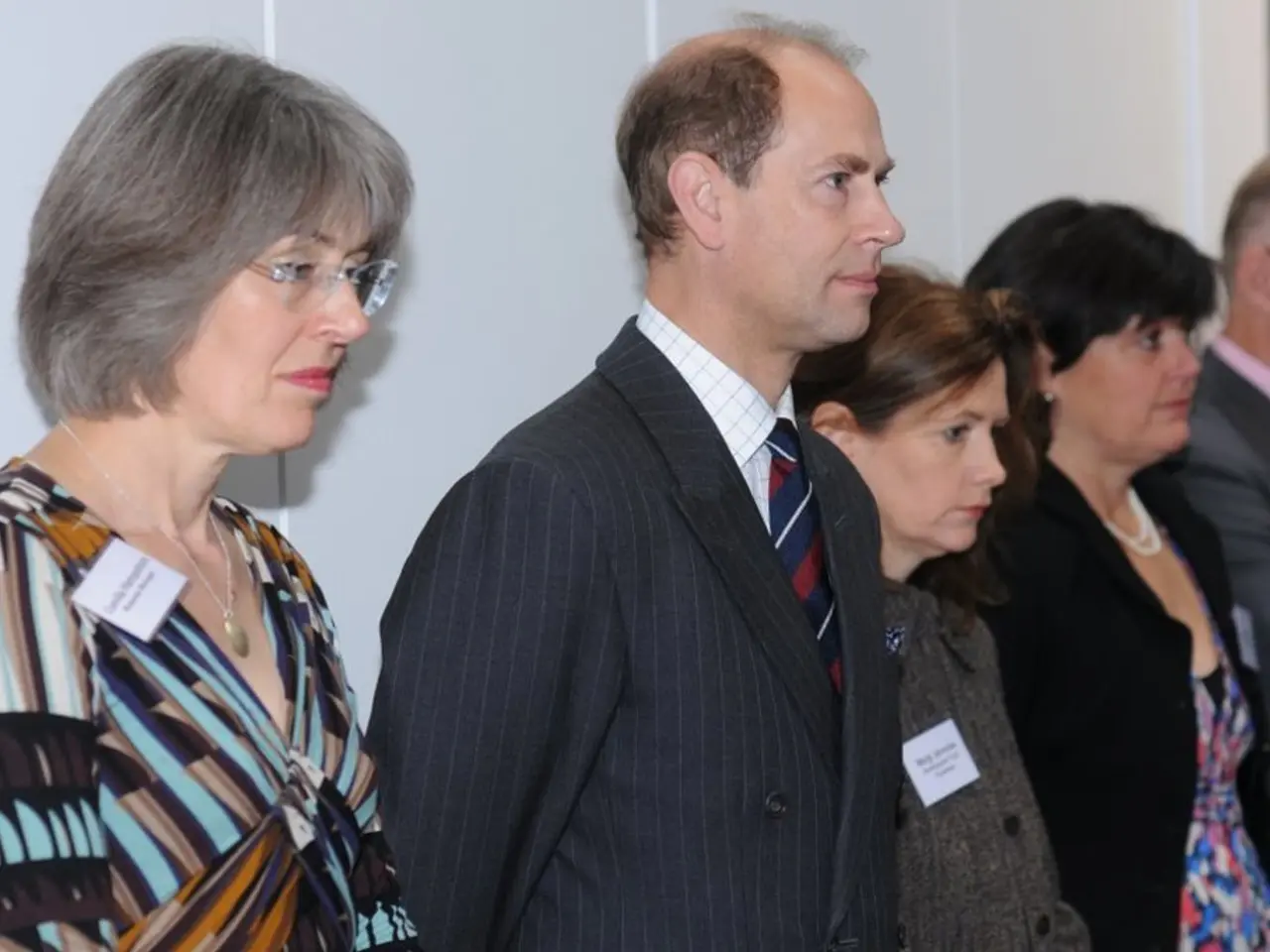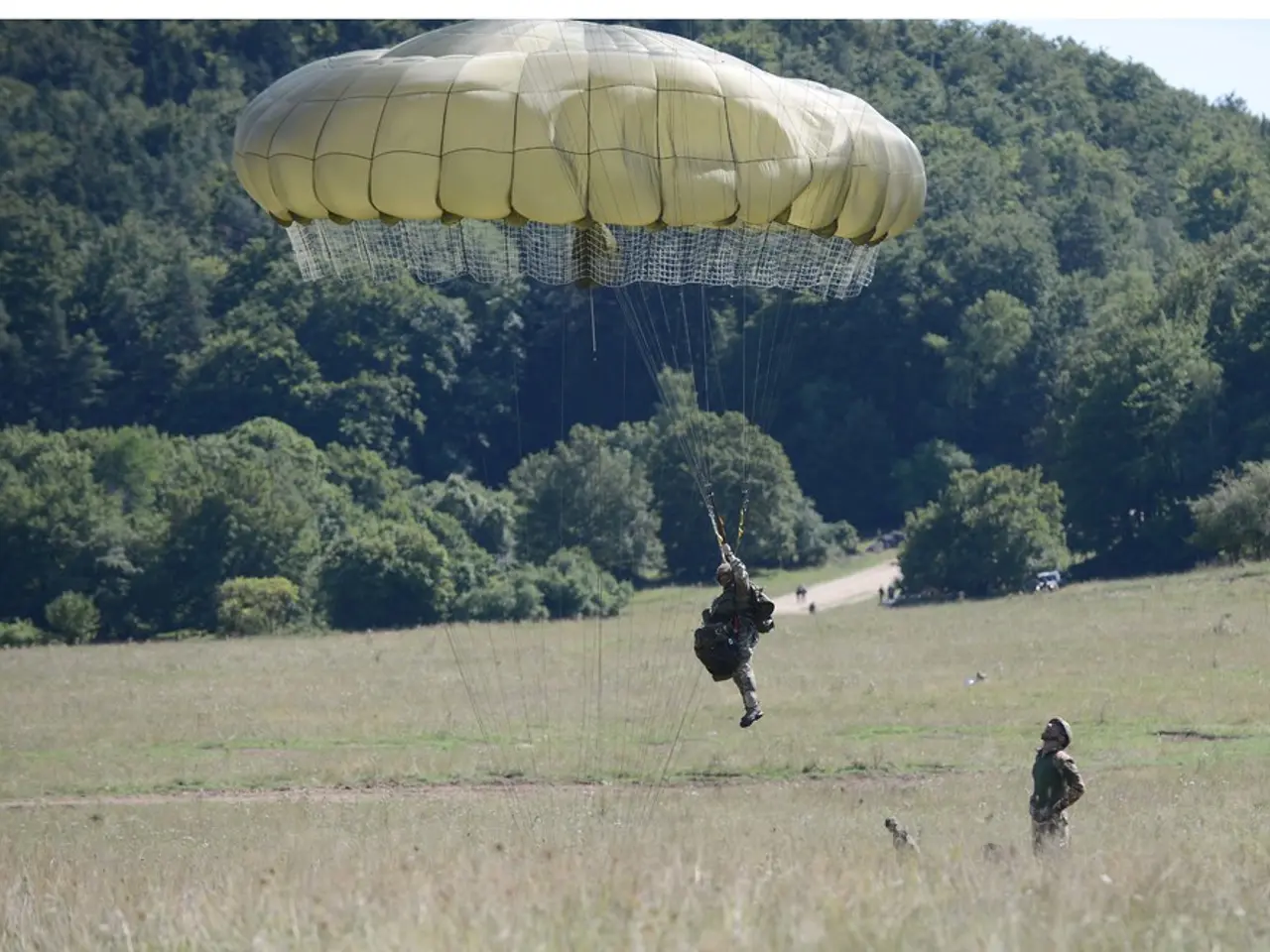Lebanon's President Aoun reinforces his commitment to disarming Hezbollah - Lebanese President Aoun reiterates his intention to disarm the militant group, Hezbollah.
In recent developments, a growing pressure to disarm Hezbollah has emerged in Lebanon. The push for a state monopoly on weapons, including the disarmament of Hezbollah, has been advocated by both Lebanese President Joseph Aoun and the United States.
President Aoun has been vocal about his calls for Hezbollah to disarm, all while seeking international support, such as a commitment of $1 billion annually for ten years to strengthen the Lebanese army and security forces. However, Hezbollah leader Naim Kassem firmly rejects this disarmament, viewing it as a submission to Israel.
In a televised address marking the first anniversary of the targeted killing of senior commander Fuad Shukr by Israel, Kassem accused U.S. envoy Thomas Barrack of prioritizing Israeli security over Lebanon's interests. Kassem went on to link those who demand the disarmament of Hezbollah to serving the "Israeli project."
Barrack, who has been involved in negotiations aiming to secure a Lebanese cabinet decision to disarm Hezbollah, pressed for this disarmament during a meeting with Lebanese Prime Minister Nawaf Salam in Beirut on Monday.
Israel, which maintains a military presence in southern Lebanon and continues airstrikes on Hezbollah targets, demands disarmament as part of ceasefire enforcement. The country insists that peace and security are contingent upon Hezbollah's disarmament and the withdrawal of Iranian-backed forces.
Despite these pressures, Hezbollah remains steadfast against disarmament, viewing it as a threat to Lebanon's sovereignty and resistance against Israel. The U.S., represented by Barrack, and Lebanese authorities under Aoun, are increasing diplomatic and political pressure to bring Hezbollah under state authority over arms. Israel’s stance remains hardline, linking peace and security to Hezbollah's disarmament and withdrawal of Iranian-backed forces.
Meanwhile, Lebanese President Aoun is advocating a balanced approach, pushing for a weapons monopoly by state forces and calling on Israel to withdraw, while also describing Hezbollah as an “essential pillar” in Lebanese society.
Roles and Positions
| Actor | Role and Stance | |------------------|-----------------------------------------------------------------------------------------------------------------| | Naim Kassem | Hezbollah deputy leader; rejects disarmament, equates it to submission to Israel; emphasizes resistance role. | | Tom Barrack | US envoy; presses for Lebanese government's formal commitment to disarm Hezbollah; links disarmament to credibility of Lebanon’s government. | | Israel | Continues military operations and occupies strategic positions in southern Lebanon; insists on Hezbollah's disarmament for ceasefire compliance. |
- Promoting a state monopoly on weapons, including the disarmament of Hezbollah, is a contentious issue in Lebanon, with Lebanese President Joseph Aoun and the United States, represented by envoy Thomas Barrack, advocating for it, while Hezbollah leader Naim Kassem firmly rejects this disarmament, viewing it as a threat to Lebanon's sovereignty and resistance against Israel.
- In political and diplomatic circles, pressure for Hezbollah's disarmament continues, with the United States, represented by Barrack, and Lebanese authorities under Aoun, increasing pressure on Hezbollah to come under state authority over arms, while Israel maintains a hardline stance, insisting that peace and security are contingent upon Hezbollah's disarmament and the withdrawal of Iranian-backed forces.
